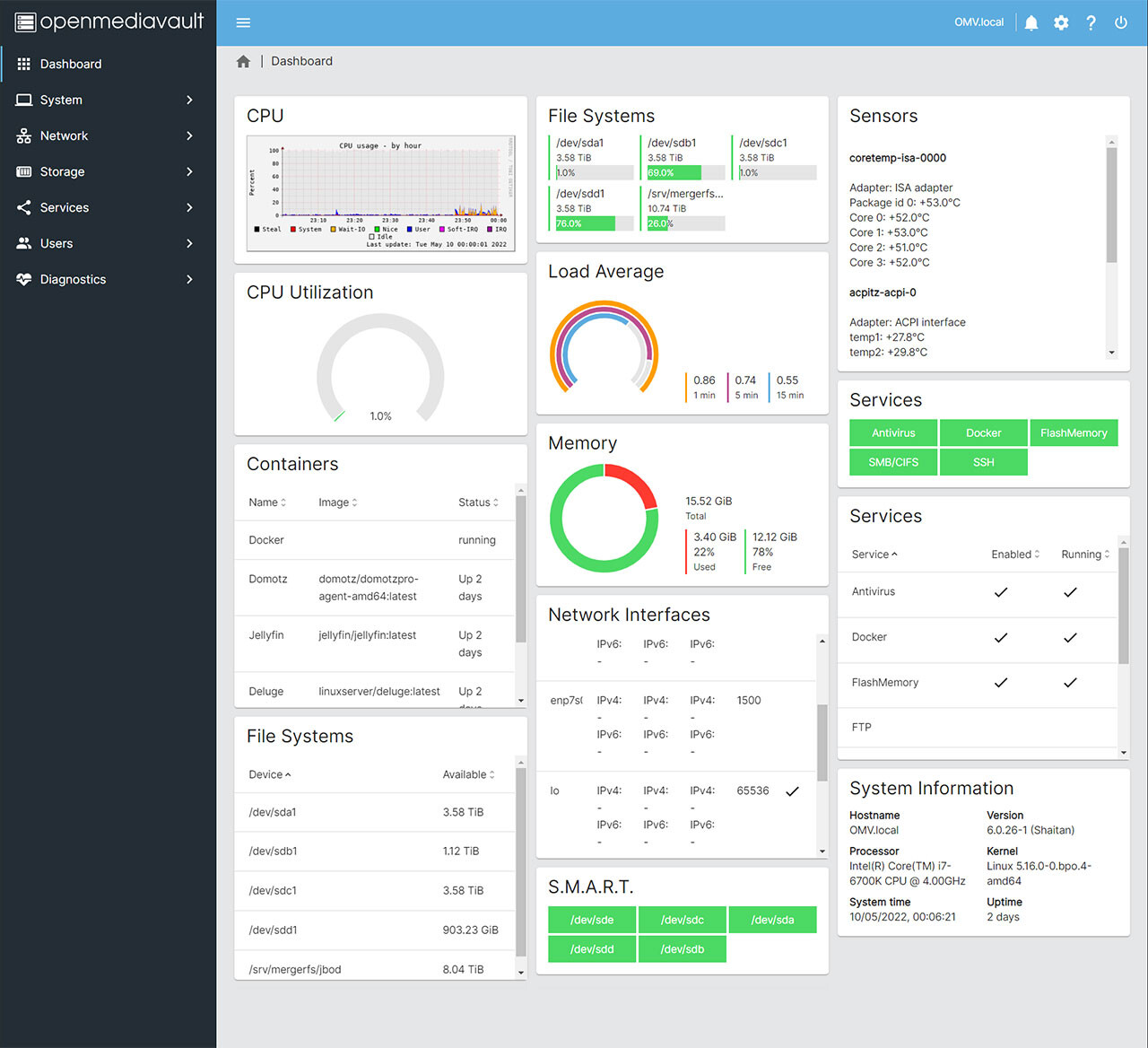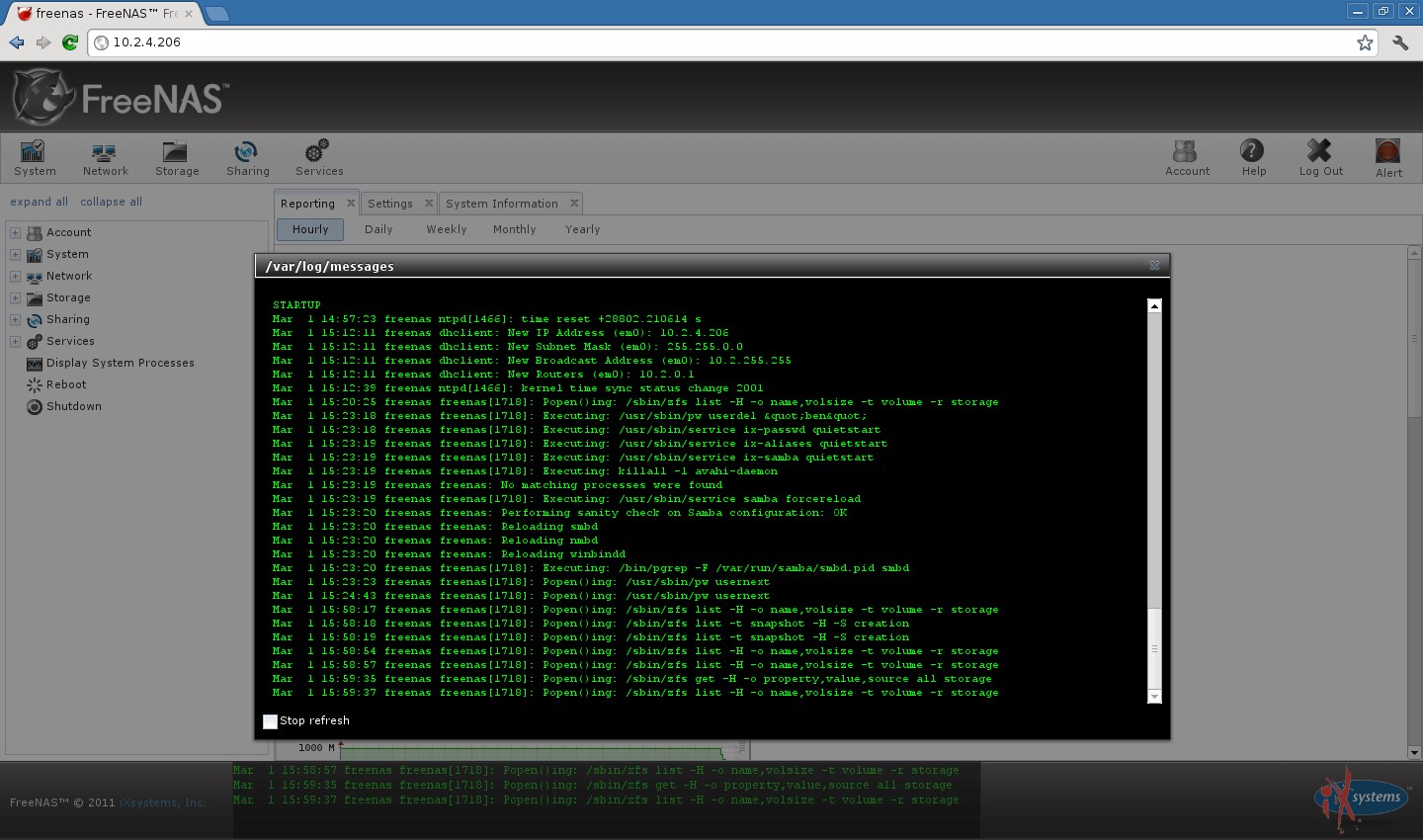OpenMediaVault Vs. FreeNAS: NAS Solutions On Linux

Executive Summary

OpenMediaVault and FreeNAS are two of the most popular open-source network-attached storage (NAS) solutions. Both are based on Linux and offer a wide range of features for managing and storing data. However, there are some key differences between the two solutions that can make one a better choice for your needs than the other.

To help you choose between OpenMediaVault and FreeNAS, this article will provide a detailed comparison of the two solutions, covering their features, ease of use, expandability, and more.
Introduction
Network-attached storage (NAS) is a file-level computer data storage server connected to a computer network providing data access to a heterogeneous group of clients. NAS is flexible, scalable, and relatively easy to set up and manage, making it a popular choice for businesses and individuals who need to store and share data.
There are two popular open-source NAS solutions available for Linux: OpenMediaVault and FreeNAS. OpenMediaVault is a Debian-based NAS distribution that is designed to be easy to use and manage. FreeNAS is a FreeBSD-based NAS distribution that is known for its stability and performance.
Feature Comparison
Ease of Use
OpenMediaVault is generally considered to be easier to use than FreeNAS. It has a user-friendly web-based interface that makes it easy to manage your NAS. OpenMediaVault also has a number of built-in wizards that can help you get started with common tasks.
FreeNAS has a more advanced web-based interface that can be more difficult to use, especially for beginners. However, FreeNAS offers a wider range of features and customization options than OpenMediaVault.
Expandability
OpenMediaVault is more expandable than FreeNAS. It can support a wider range of hardware and software, including third-party plugins and add-ons. This makes it easier to add new features and functionality to your OpenMediaVault NAS.
FreeNAS is less expandable than OpenMediaVault. It has a more limited selection of supported hardware and software. This can make it more difficult to add new features and functionality to your FreeNAS NAS.
Performance
FreeNAS is generally faster than OpenMediaVault. It is optimized for performance and can handle large workloads without slowing down. FreeNAS also has a number of features that can help to improve performance, such as ZFS and SSD caching.
OpenMediaVault is not as fast as FreeNAS, but it is still a good choice for most users. It can handle moderate workloads without slowing down. OpenMediaVault also has a number of features that can help to improve performance, such as RAID and LVM.
Security
OpenMediaVault and FreeNAS both have a good security track record. They both use industry-standard security features to protect your data from unauthorized access. OpenMediaVault and FreeNAS also have a number of security features that can be customized to meet your specific needs.
Support
OpenMediaVault has a larger community than FreeNAS. This means that it is easier to find help and support for OpenMediaVault. There are a number of online forums and documentation available for OpenMediaVault.
FreeNAS has a smaller community than OpenMediaVault. However, FreeNAS has a strong development team that is constantly improving the software. There are also a number of online forums and documentation available for FreeNAS.
Conclusion
OpenMediaVault and FreeNAS are both excellent open-source NAS solutions. OpenMediaVault is a good choice for users who are looking for an easy-to-use and expandable solution. FreeNAS is a good choice for users who are looking for a fast and secure solution.
Ultimately, the best NAS solution for you will depend on your specific needs and requirements.
Keyword Phrase Tags
- OpenMediaVault
- FreeNAS
- NAS
- Linux
- Network-attached storage

Great article, thanks for sharing this great comparison! I found it very helpful in understanding the differences between OpenMediaVault and FreeNAS. Keep up the great work!
This article makes some valid points, but I believe it could benefit from a more in-depth analysis of the security features offered by both solutions. It would be helpful for readers to understand how each platform handles data protection and encryption.
I’m curious to know how well these NAS solutions perform in real-world scenarios. Any insights into their performance benchmarks or user experiences would be greatly appreciated.
I’m not sure I agree with the author’s assessment that OpenMediaVault is easier to use than FreeNAS. I’ve found that FreeNAS’s web-based interface is more user-friendly and intuitive.
Looks like we’re comparing apples and oranges here. OpenMediaVault is a Debian-based NAS solution, while FreeNAS is based on FreeBSD. It’s like comparing a Ford to a Ferrari – they’re both cars, but they’re designed for different purposes.
Oh wow, another article comparing NAS solutions. How original. I guess we can never have enough of these, right? *rolls eyes*
I’m not sure which NAS solution is better, but I do know one thing: they both sound like a lot of fun to pronounce! OpenMediaVault, FreeNAS – say it ten times fast and see if you don’t end up with a tongue twister.
I’ve been using OpenMediaVault for years and I’ve never had any problems with it. It’s a solid, reliable NAS solution that’s perfect for my needs.
I tried using FreeNAS once and it was a complete disaster. The interface was clunky, the performance was terrible, and I couldn’t get it to work properly no matter what I did.
I’m new to NAS solutions and I’m not sure which one is right for me. Can anyone recommend a good resource where I can learn more about them?
Here’s a tip for anyone considering using OpenMediaVault: make sure you have a good understanding of Linux before you get started. It’s not as user-friendly as some other NAS solutions, but it’s still a great option if you’re comfortable with the command line.
I strongly disagree with the author’s claim that FreeNAS is more powerful than OpenMediaVault. In my experience, OpenMediaVault is just as capable as FreeNAS, and it’s much easier to use.
OpenMediaVault and FreeNAS: the two most popular NAS solutions for Linux. Ironic, isn’t it? Linux is known for its freedom and open source philosophy, yet the two most popular NAS solutions for it are closed source and proprietary.
Oh, another article comparing NAS solutions. Just what we needed. I guess I’ll have to add this to my ever-growing collection of useless information.
I’m not sure which NAS solution is better, but I do know one thing: they both sound like something out of a science fiction movie. OpenMediaVault, FreeNAS – they could be the names of alien spacecraft!